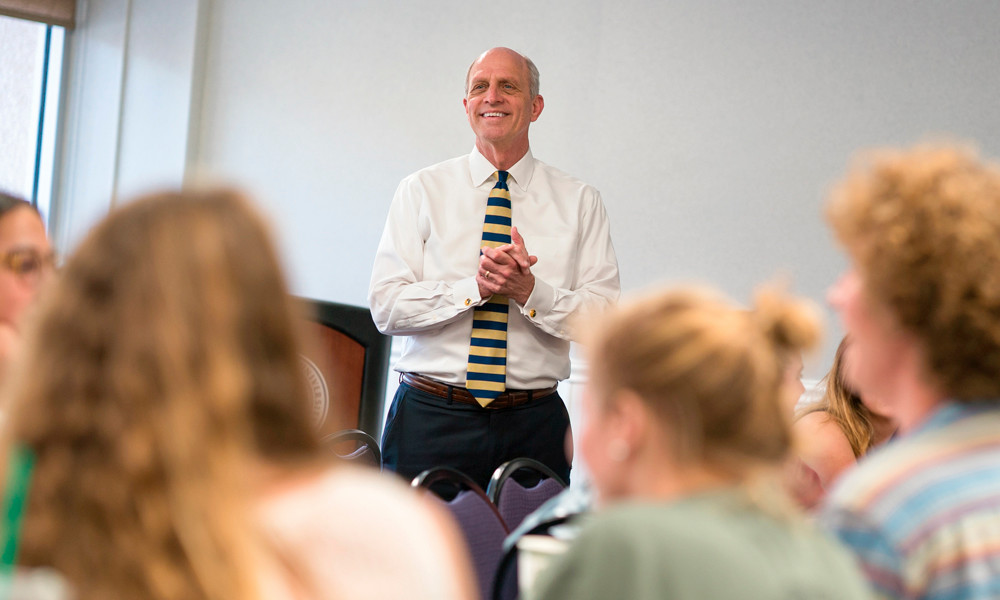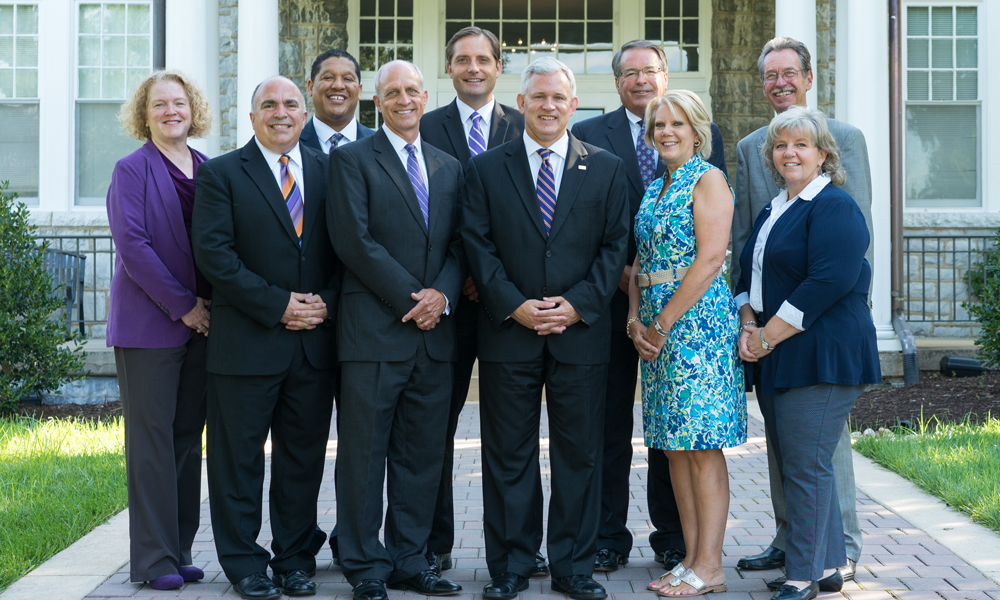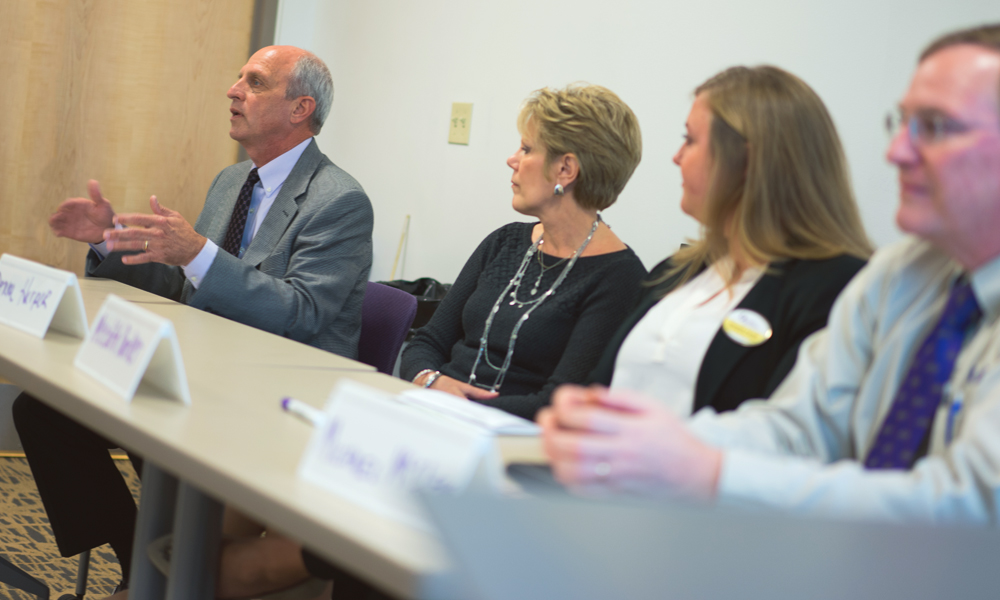Culture of opportunity
JMU stresses leadership through learning and encouragement
Featured Stories
SUMMARY: Following JMU’s inclusion on TIME magazine’s list of the Top 100 Best Colleges for Future Leaders, longtime professors Mark Warner and Brian Charette say JMU’s secret to producing effective leaders starts with its student success culture.
Professor emeritus Mark Warner (’79, ’81M, ’85Ed.S) is a product of JMU’s culture of leadership.
In his freshman year at Madison, his resident adviser, Dale Holt (’76), who pursued a career in teaching and later became chief operations officer for Virginia Beach City Public Schools, encouraged him to be an RA. Warner wasn’t convinced, but Holt persisted.
“I became an RA, and it changed the whole trajectory of my life,” Warner said. The decision led him to pursue a career in higher education at the school that taught him about leadership. Warner would go on to serve in a variety of administrative roles and develop the popular class Leadership and Personal Growth, which he led for nearly three decades.

Now retired after 40 years — his last position was senior vice president for Student Affairs — Warner gives guest lectures and consults primarily on servant-based leadership. He also touts the importance of leaders passing the torch. “I think the idea of ‘you have to have a title to be a leader’ is totally wrong,” he said. “You can be a wonderful leader without a title.”
Pointing to the student-led SafeRides program, he said the organization is successful because students lead where they are. “[T]o me, that’s the magic.”
|
“We’re the campus that says, ‘Look to your left, look to your right,’ and ‘in four years there’s going to be three very successful people here.” — Mark Warner (’79, ’81M, ’85Ed.S), professor emeritus |
While anyone can, in theory, be a leader, Warner said they must have access to opportunity combined with learning, challenge and support. “I think that’s key,” he said. At JMU, which was recently named to TIME magazine’s list of the Top 100 Best Colleges for Future Leaders, students have those opportunities. “I think it really starts with our student success culture. We have a student success ethos that has permeated the campus.”
JMU isn’t an institution where, at orientation, some official stands and says, “Look to your left, look to your right; one of you won’t be here in four years,” Warner said. “We’re the campus that says, ‘Look to your left, look to your right,’ and ‘in four years there’s going to be three very successful people here.’”
|
“Just through the Impact3 program, JMU has invested thousands and thousands of both man hours and dollars to deepen the culture of leadership on campus.” — Brian Charette, adjunct professor |
Potential leaders must also be willing to learn, said adjunct professor Brian Charette, who also taught leadership classes at JMU for many years before his retirement. “[U]nfortunately, most leadership training — at least in the corporate environment — is not very effective at developing the leadership behavior of its participants,” he said.
Charette, former assistant to the president for Strategic Planning, teaches Applied Leadership, an elective in the Innovation MBA Program. The final class in the program for many MBA students, it takes a practical approach to leadership with a study of self — such as through a focus on emotional intelligence — and real-world leadership practices.
First, his students develop a set of leadership competencies and define their own parameters for “effective leadership.” Then, they develop those competencies. “I suppose the class is unique in that sense,” Charette said. In terms of an approach to theory, he said, much of the learning is based on Jim Kouzes and Barry Posner’s research and model.

JMU’s faculty and staff also benefit from the Impact3 leadership development program, which Charette said has graduated 241 participants over 20 years. To his knowledge, it’s a unique program in American higher education, because it joins faculty and staff from every campus division to learn leadership and share the experience of developing it.
“Just through the Impact3 program, JMU has invested thousands and thousands of both man hours and dollars to deepen the culture of leadership on campus,” he said.

